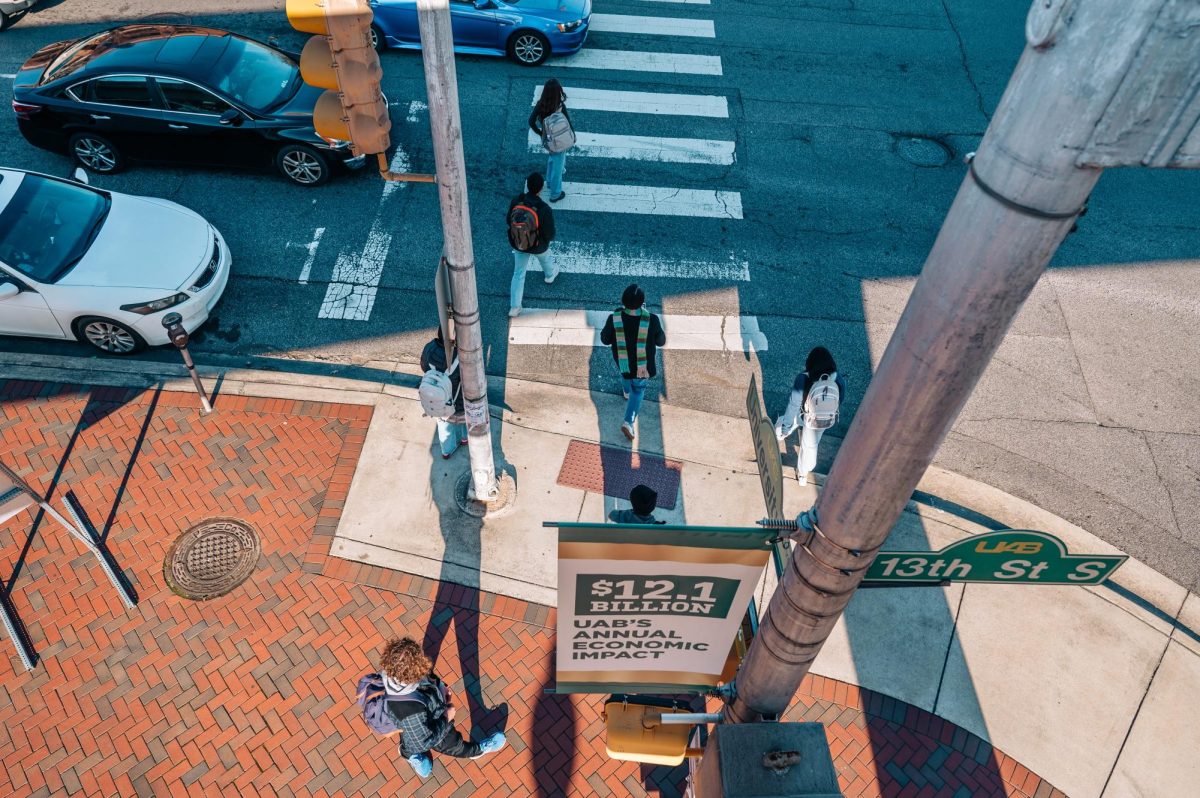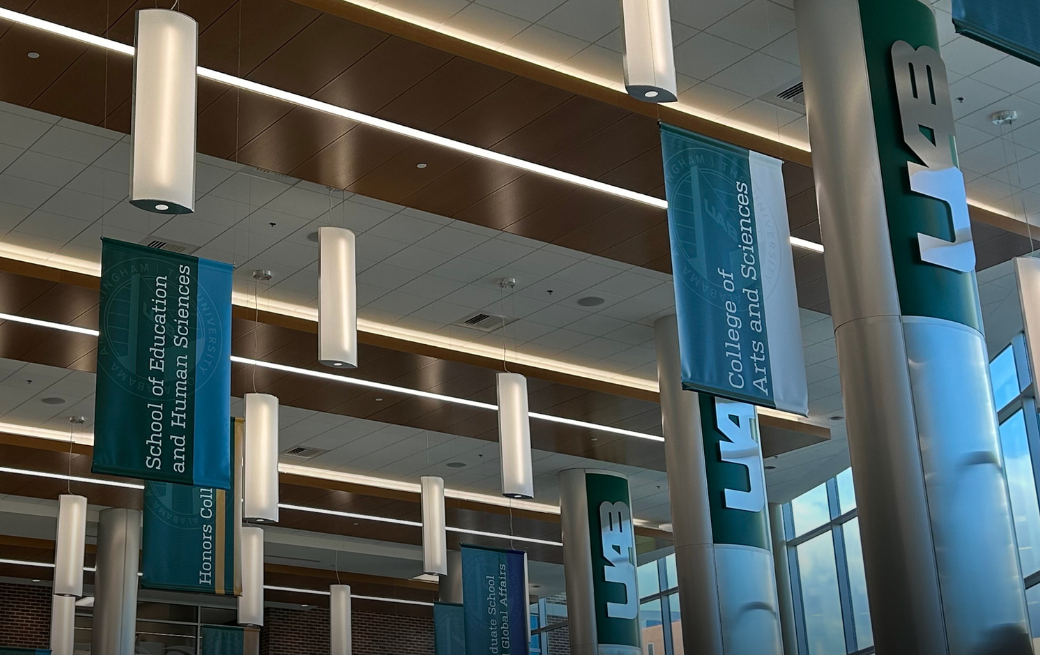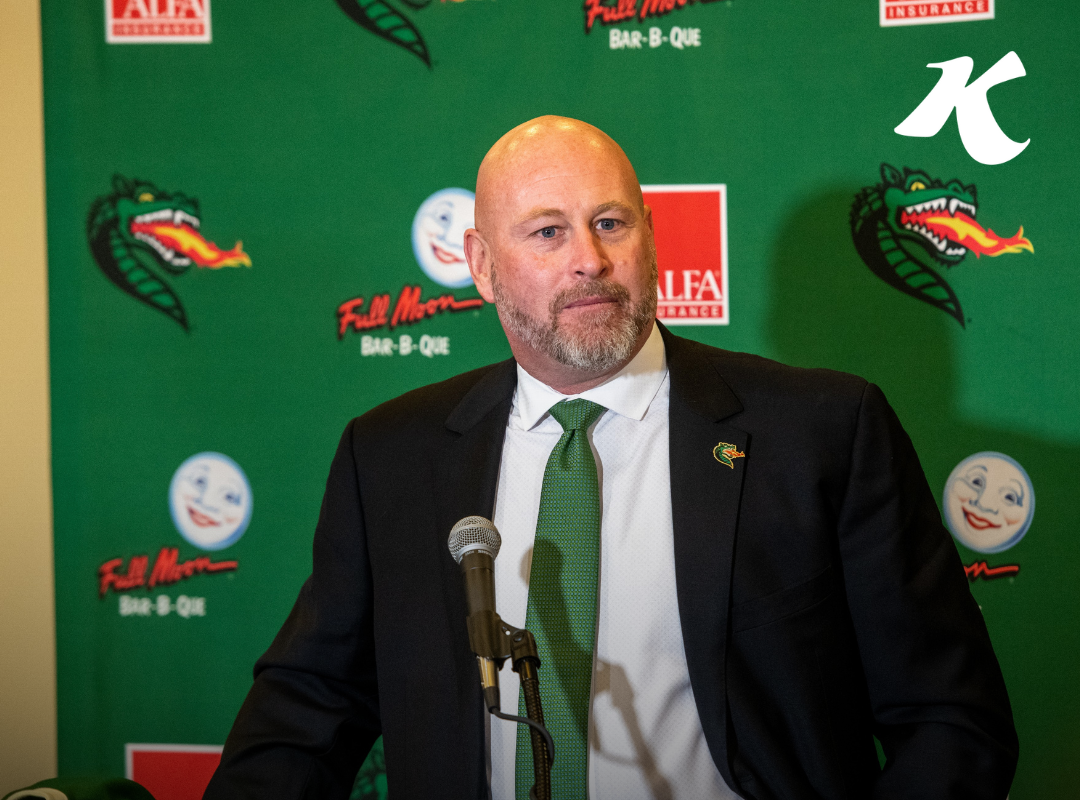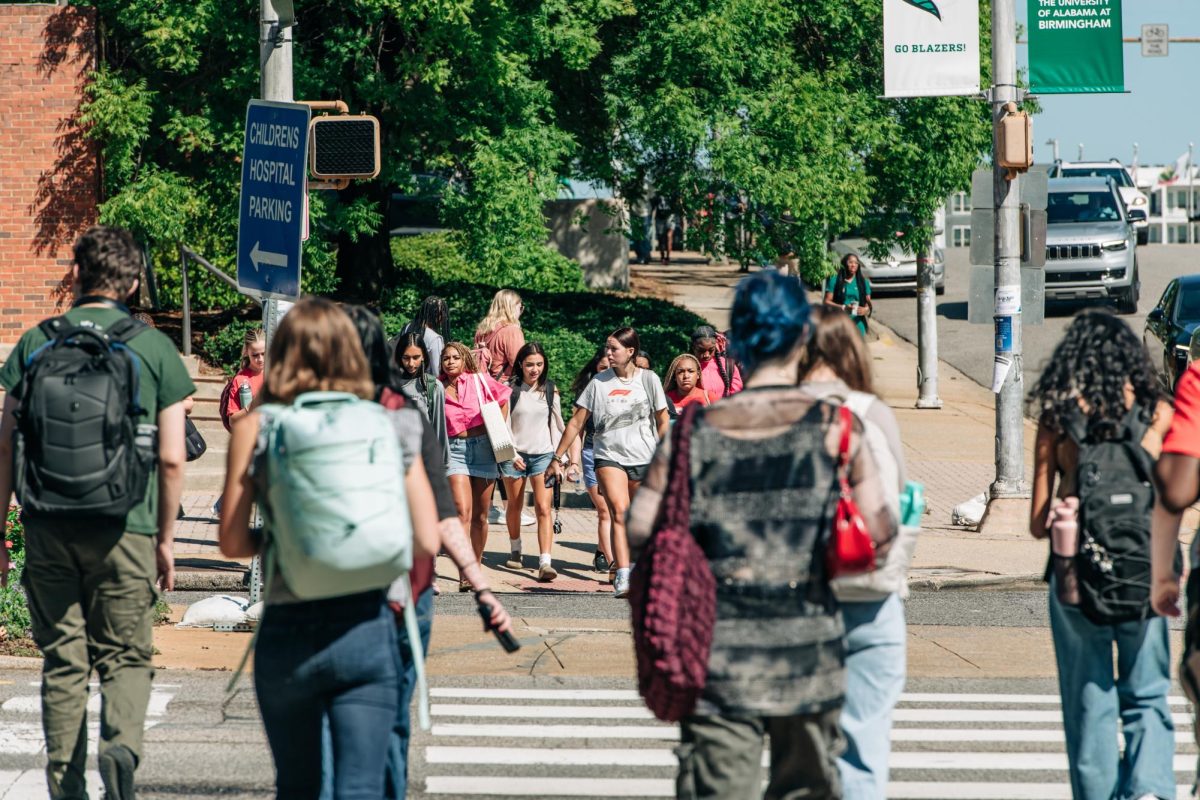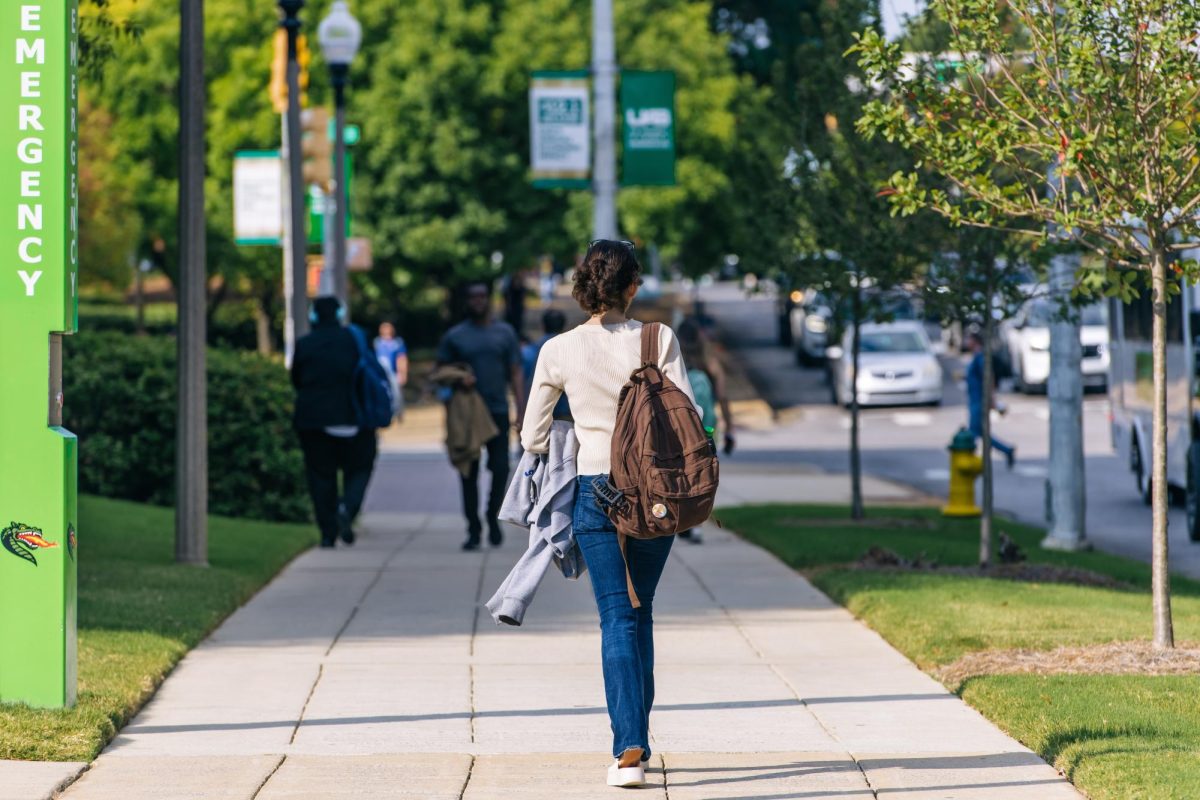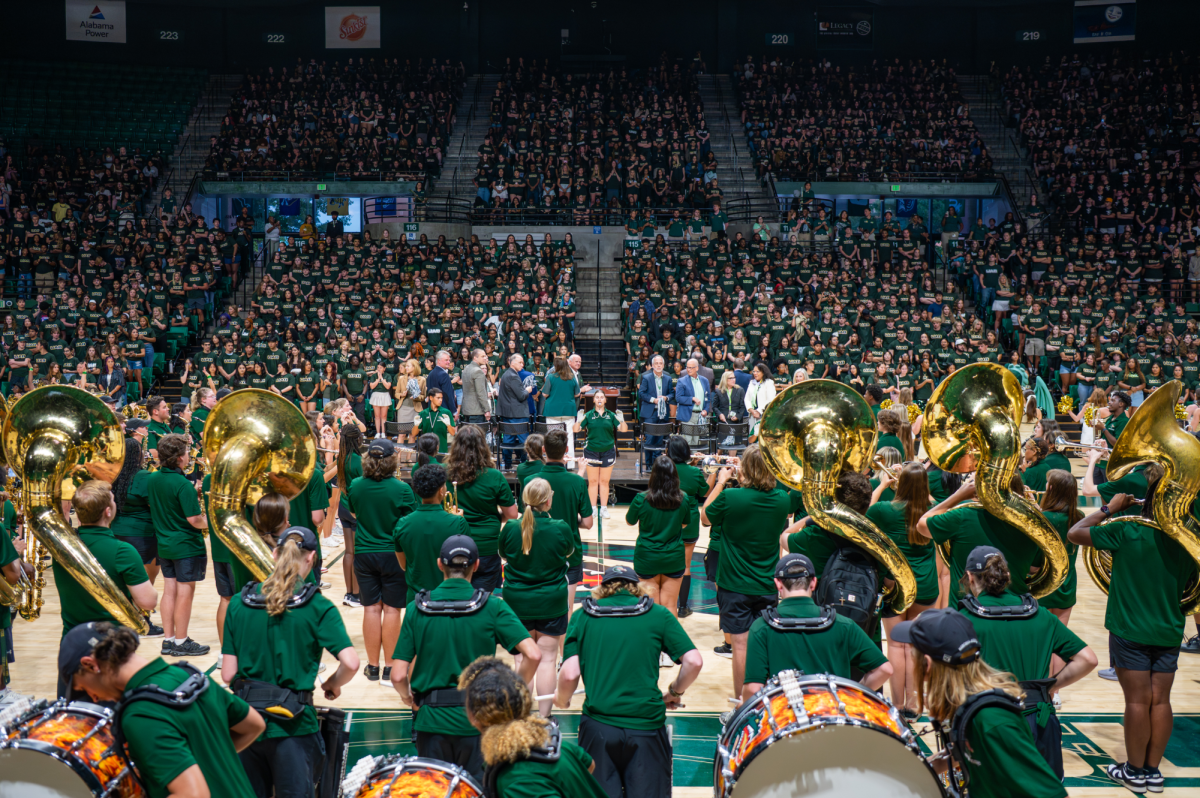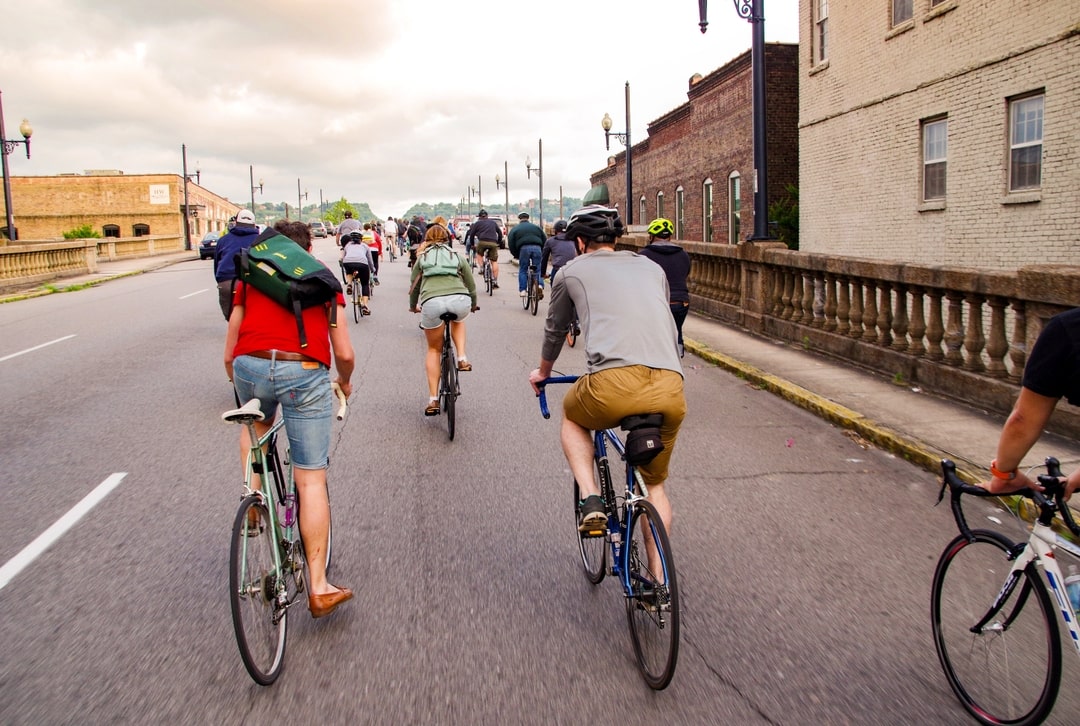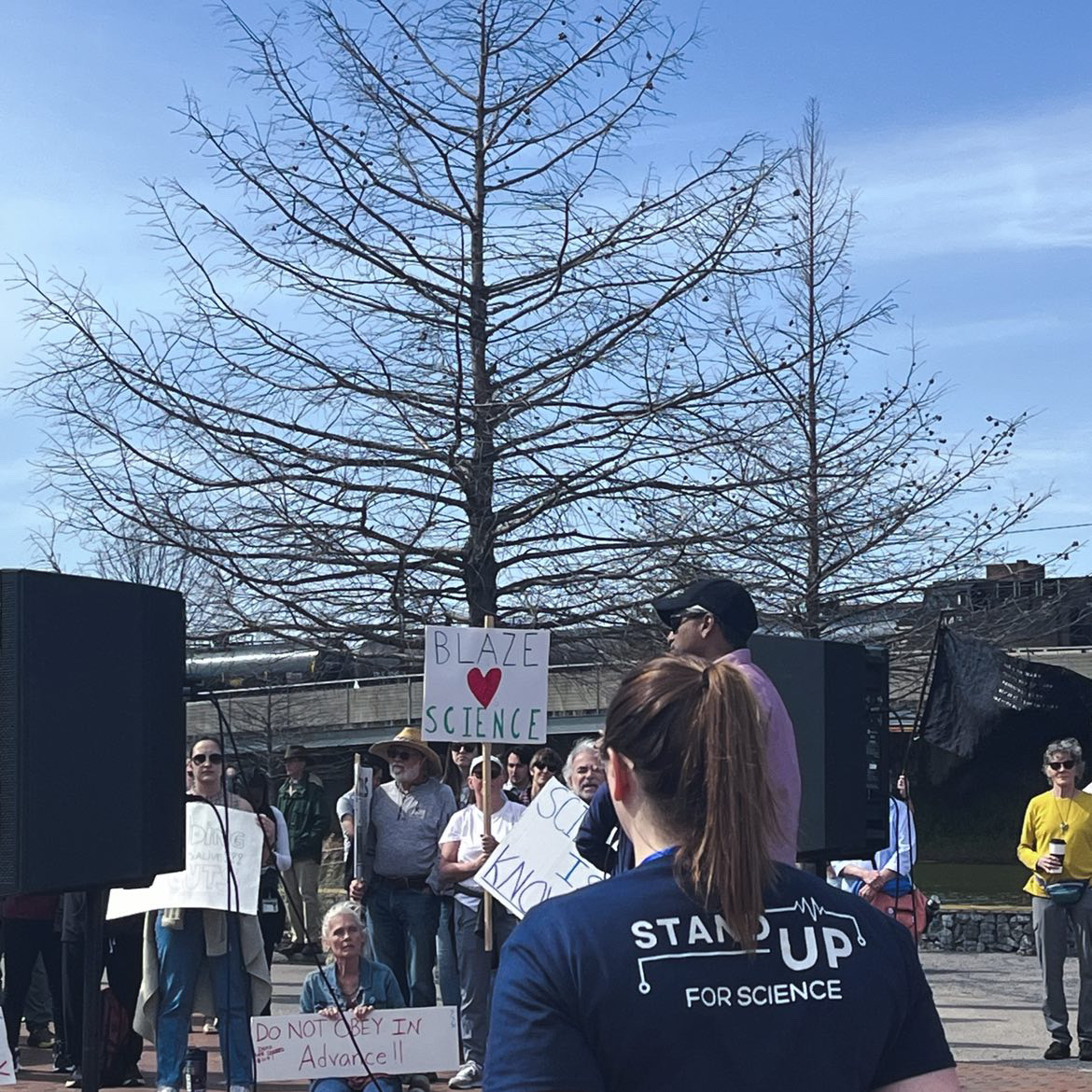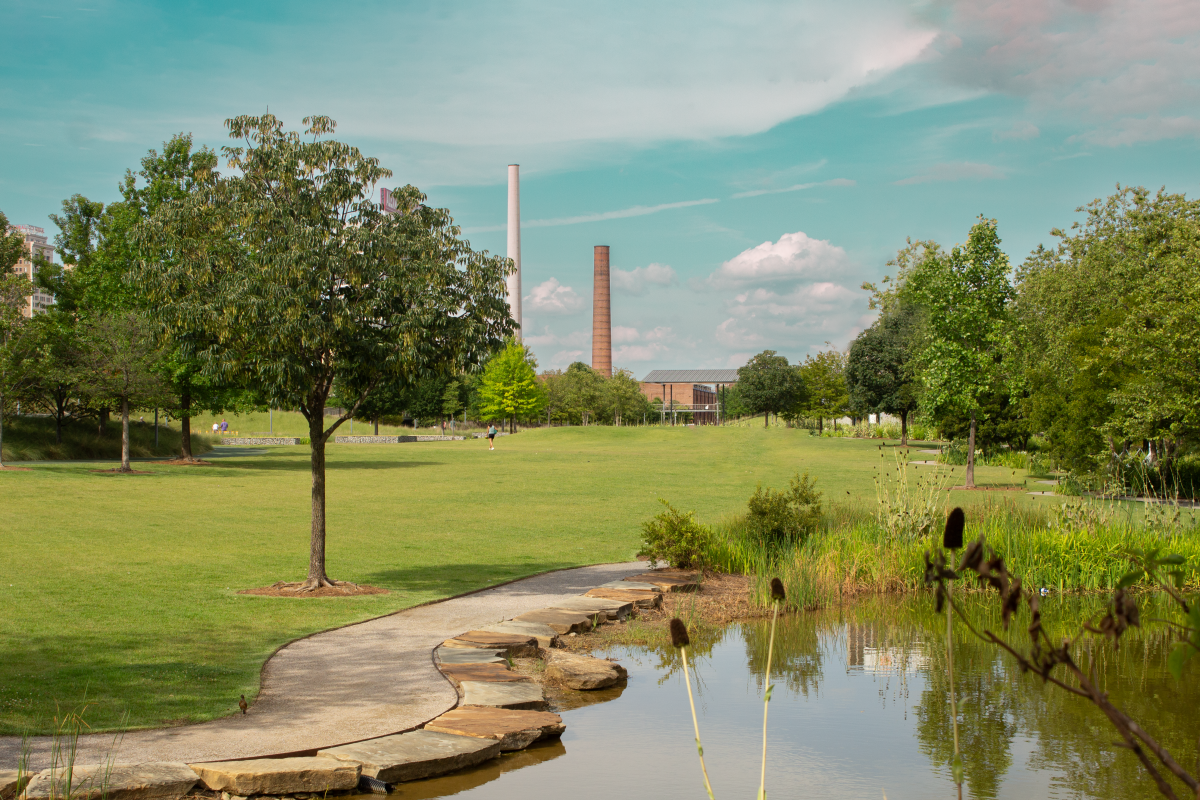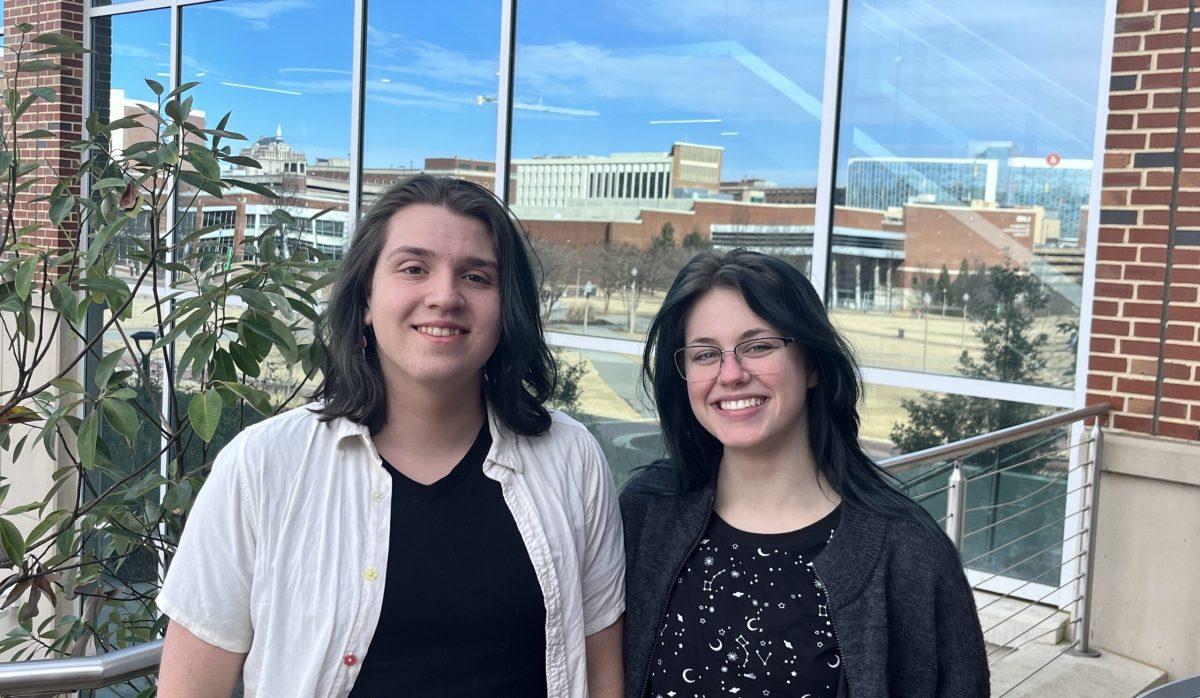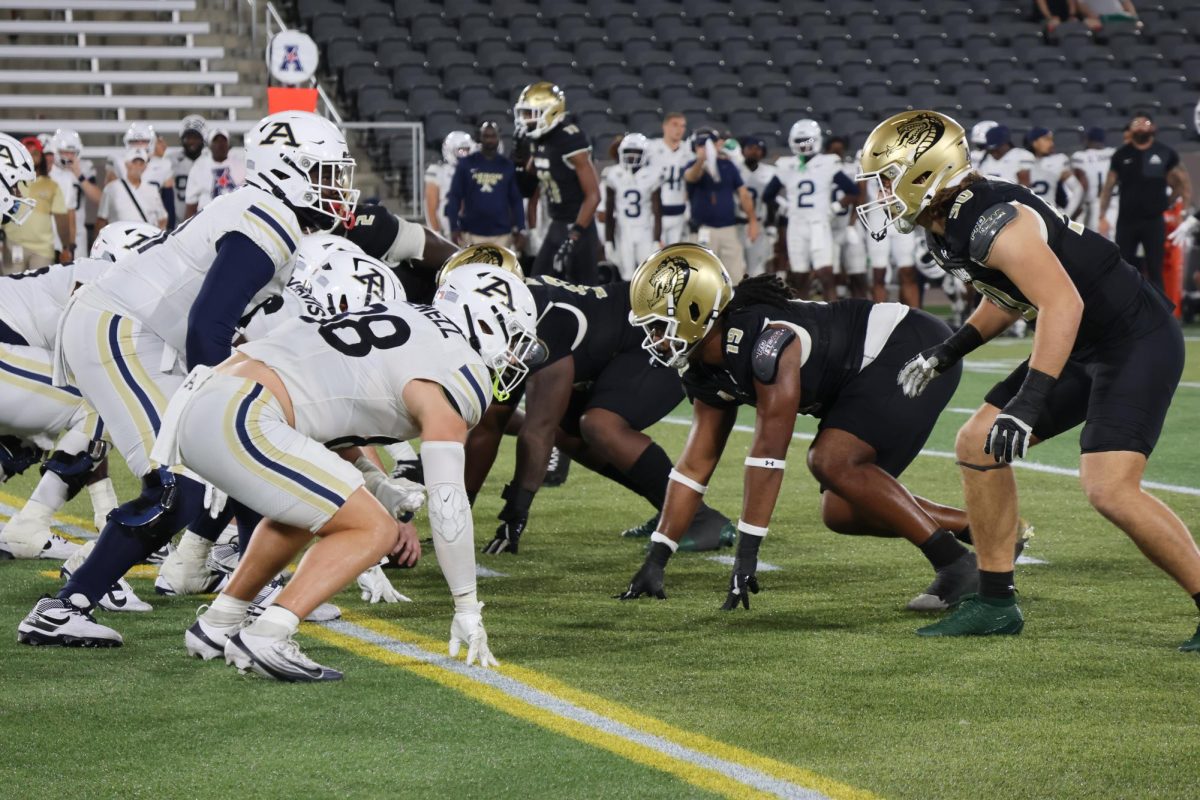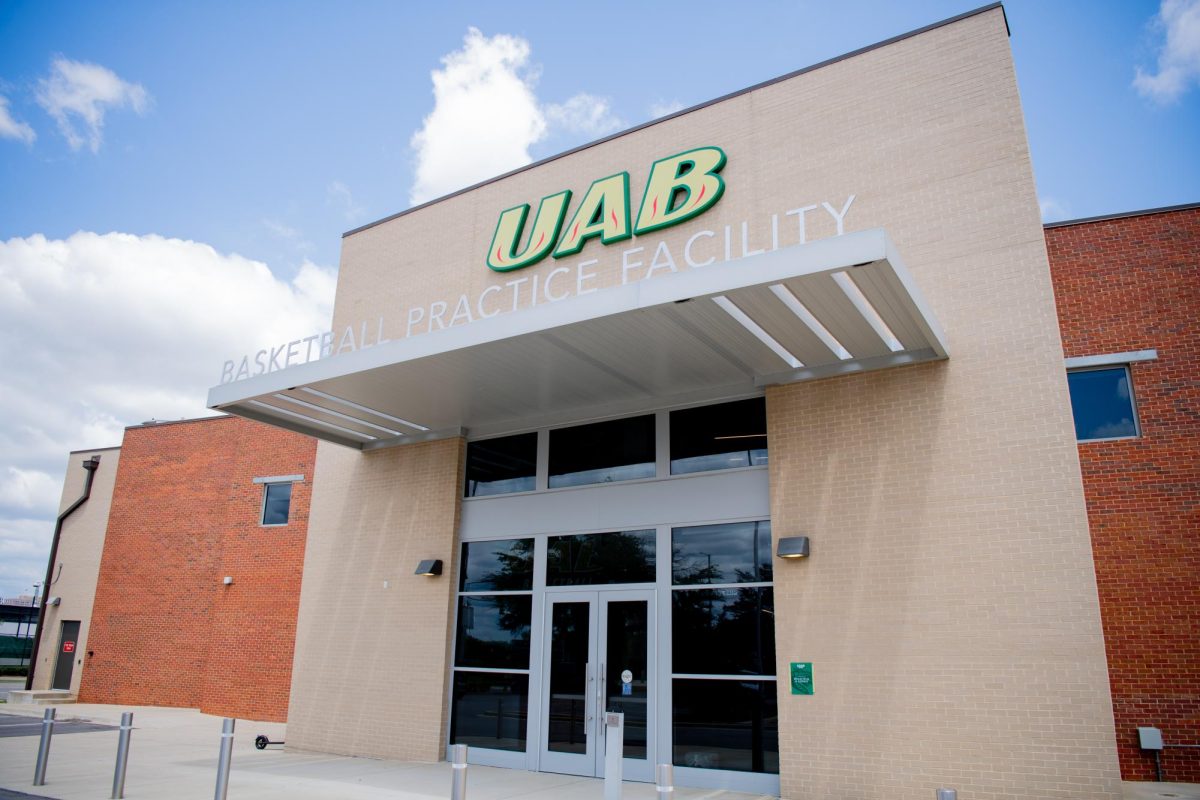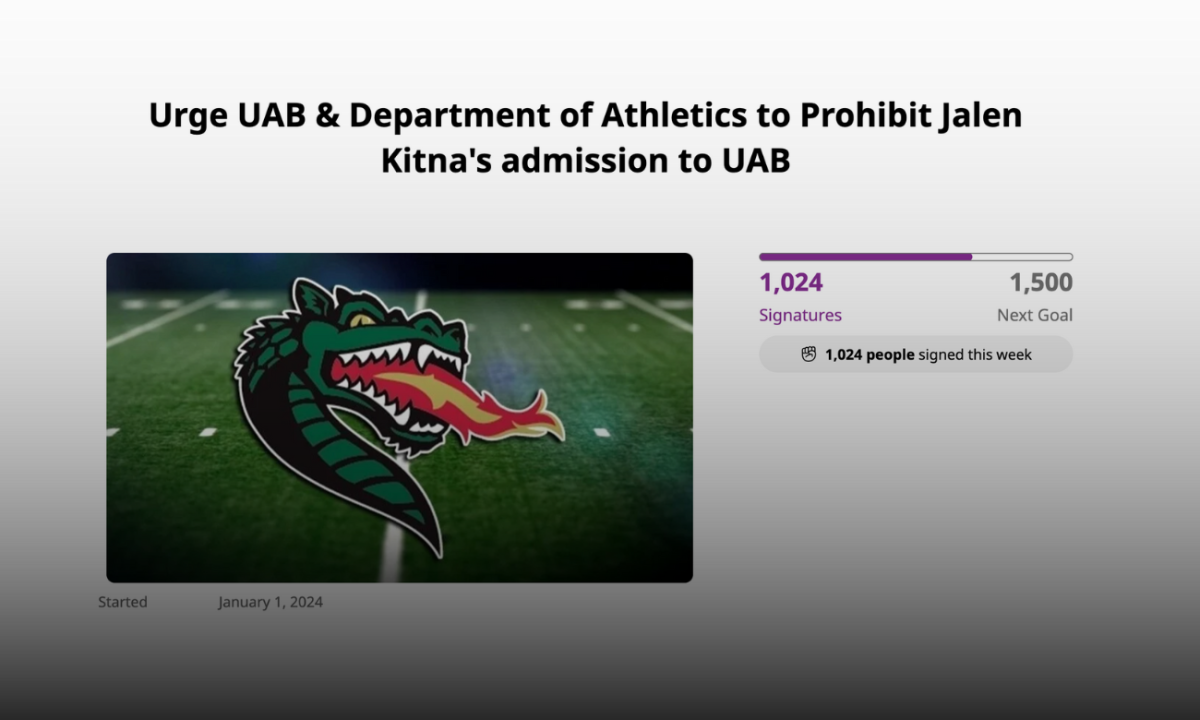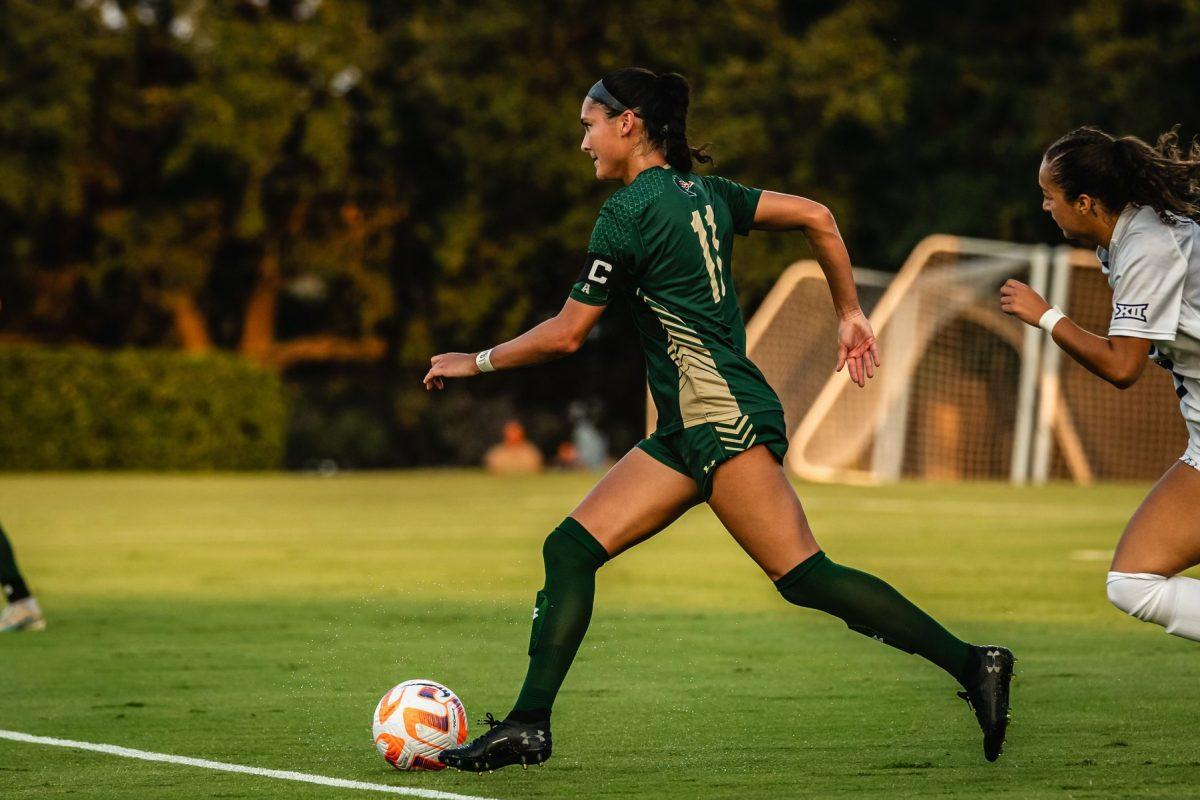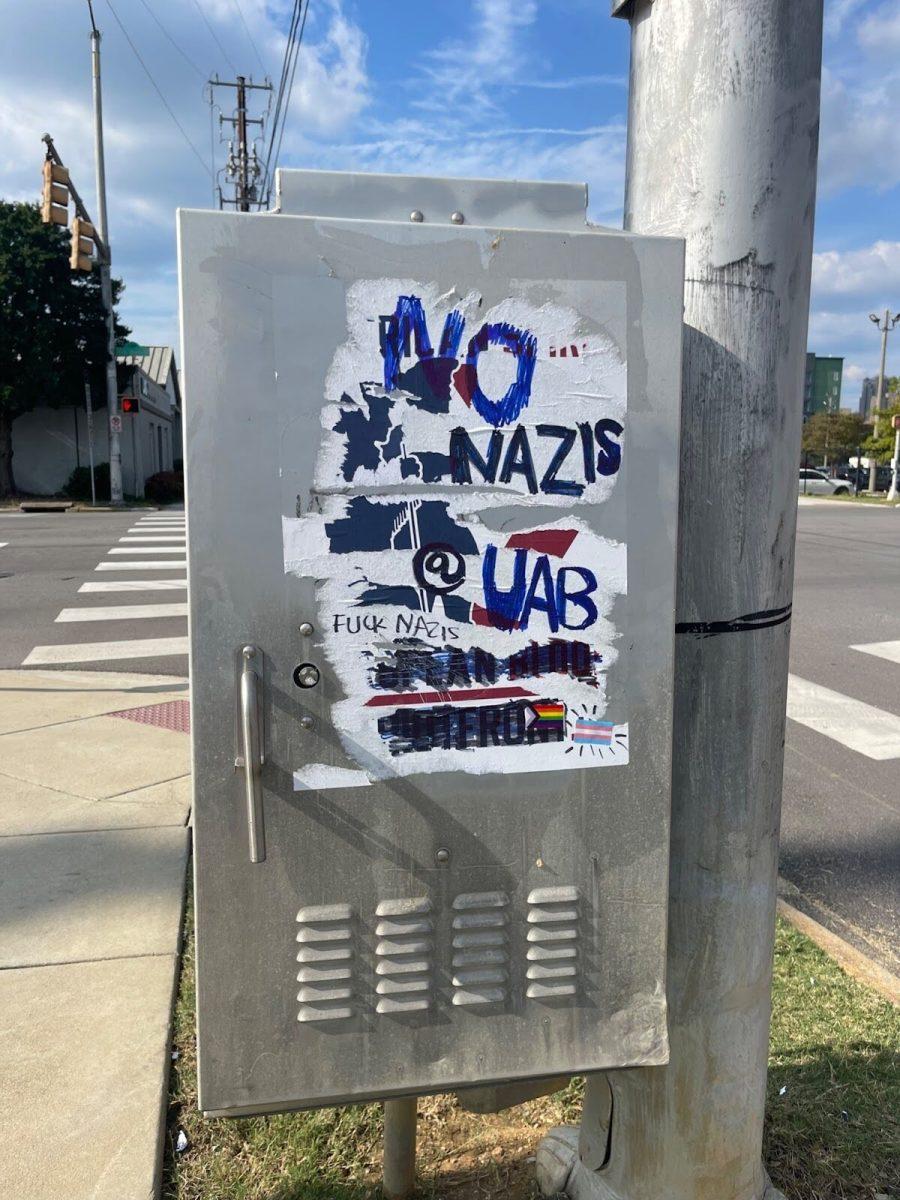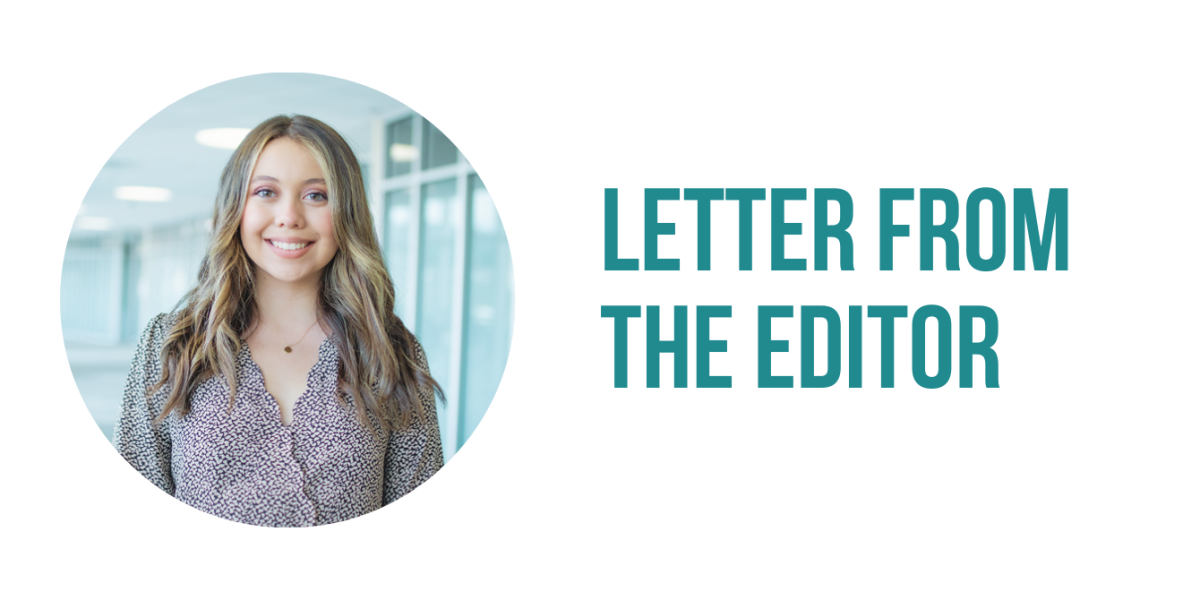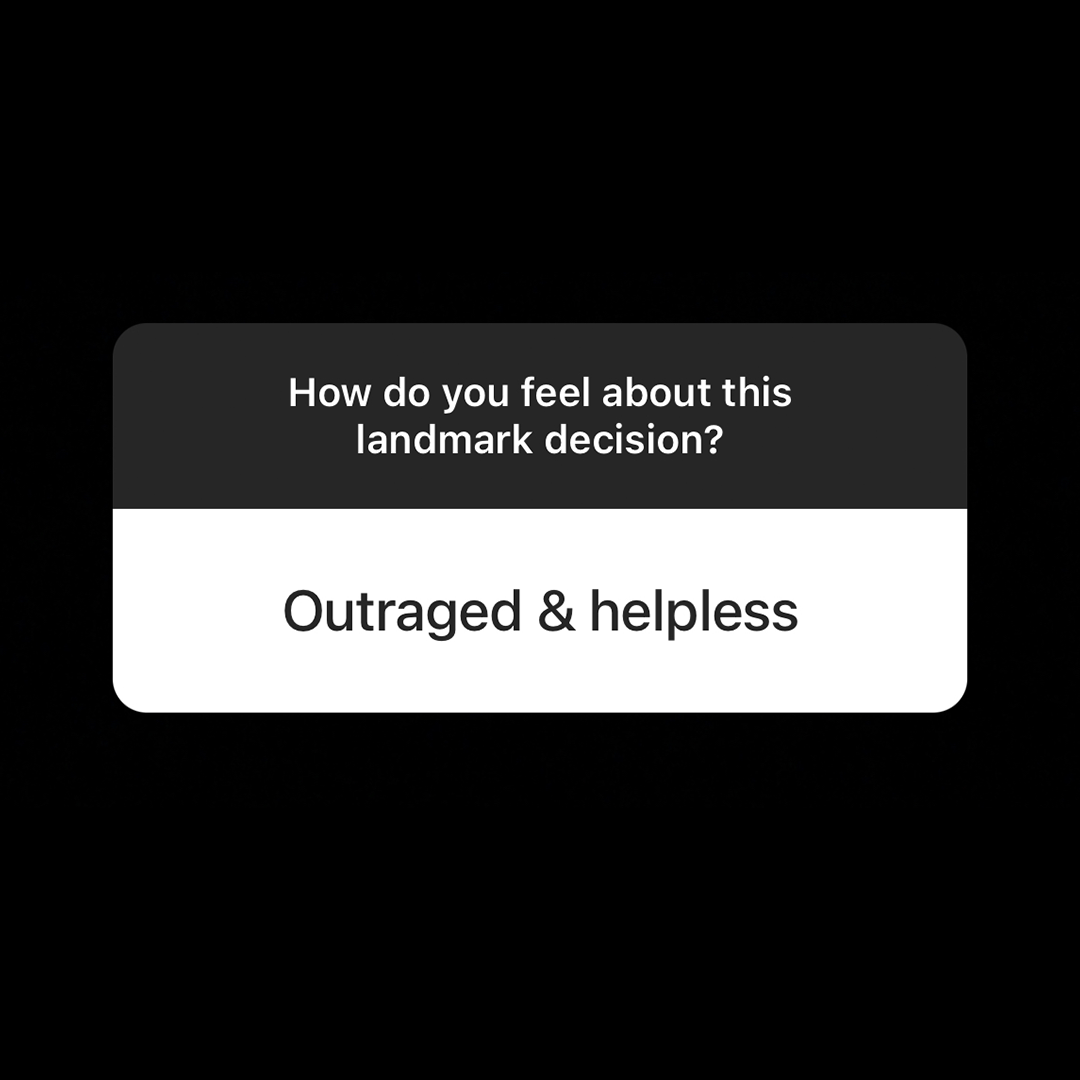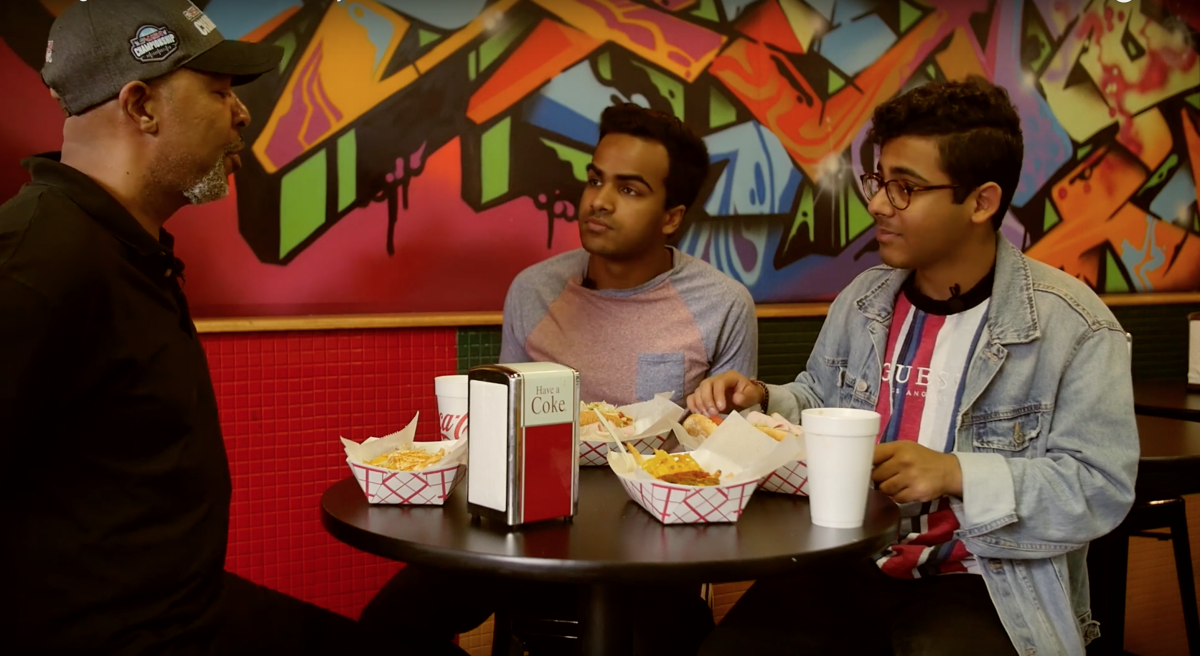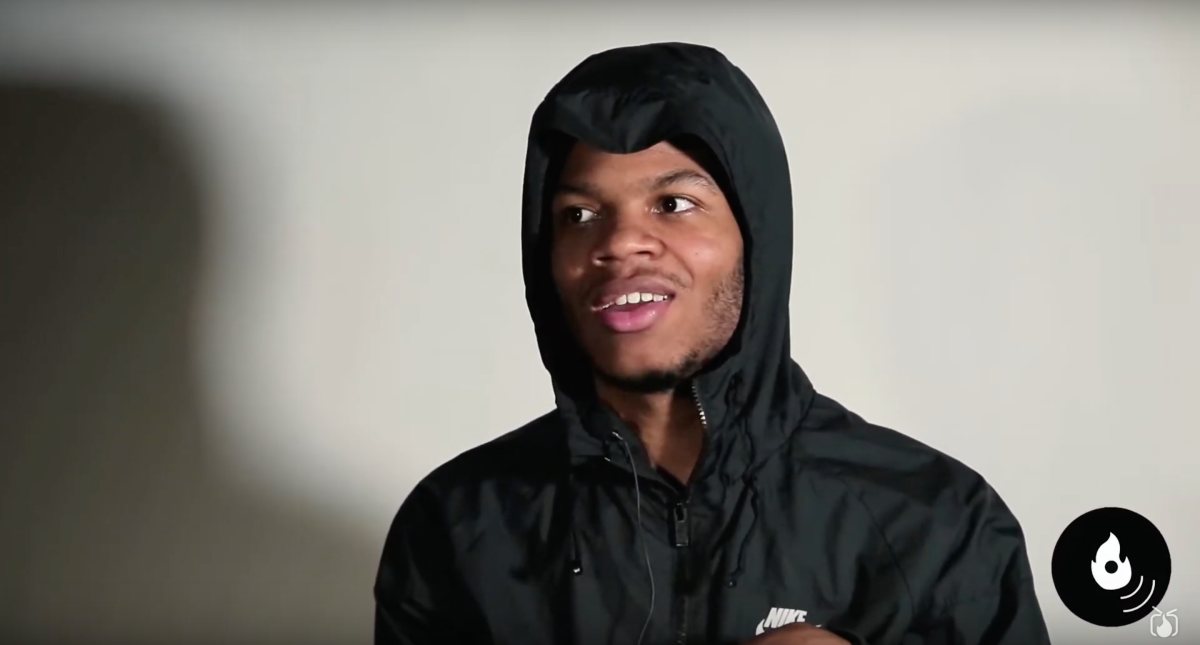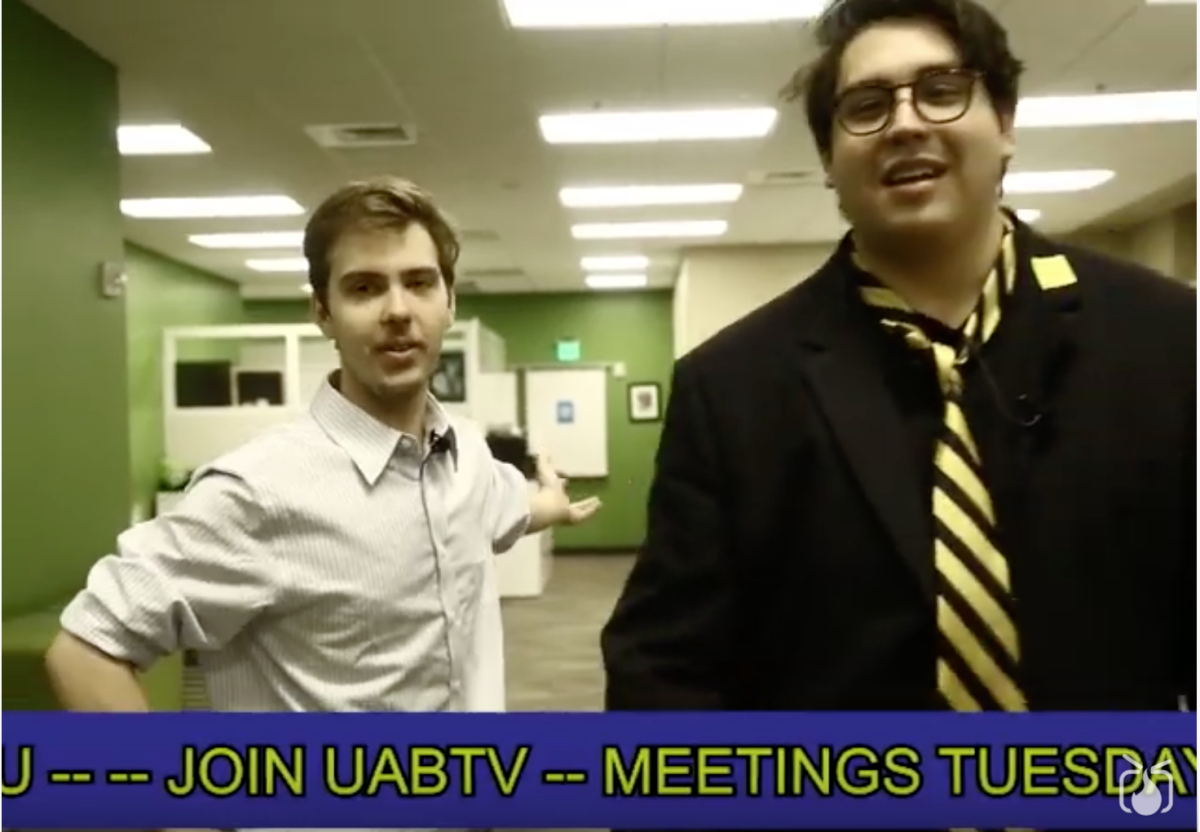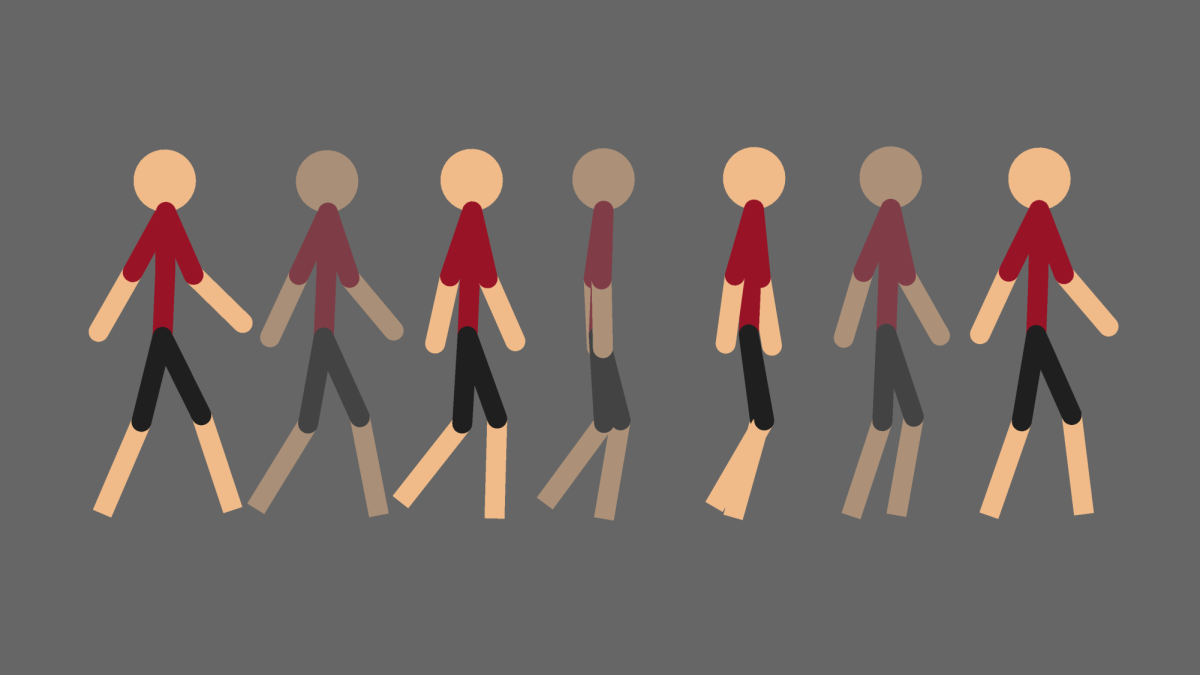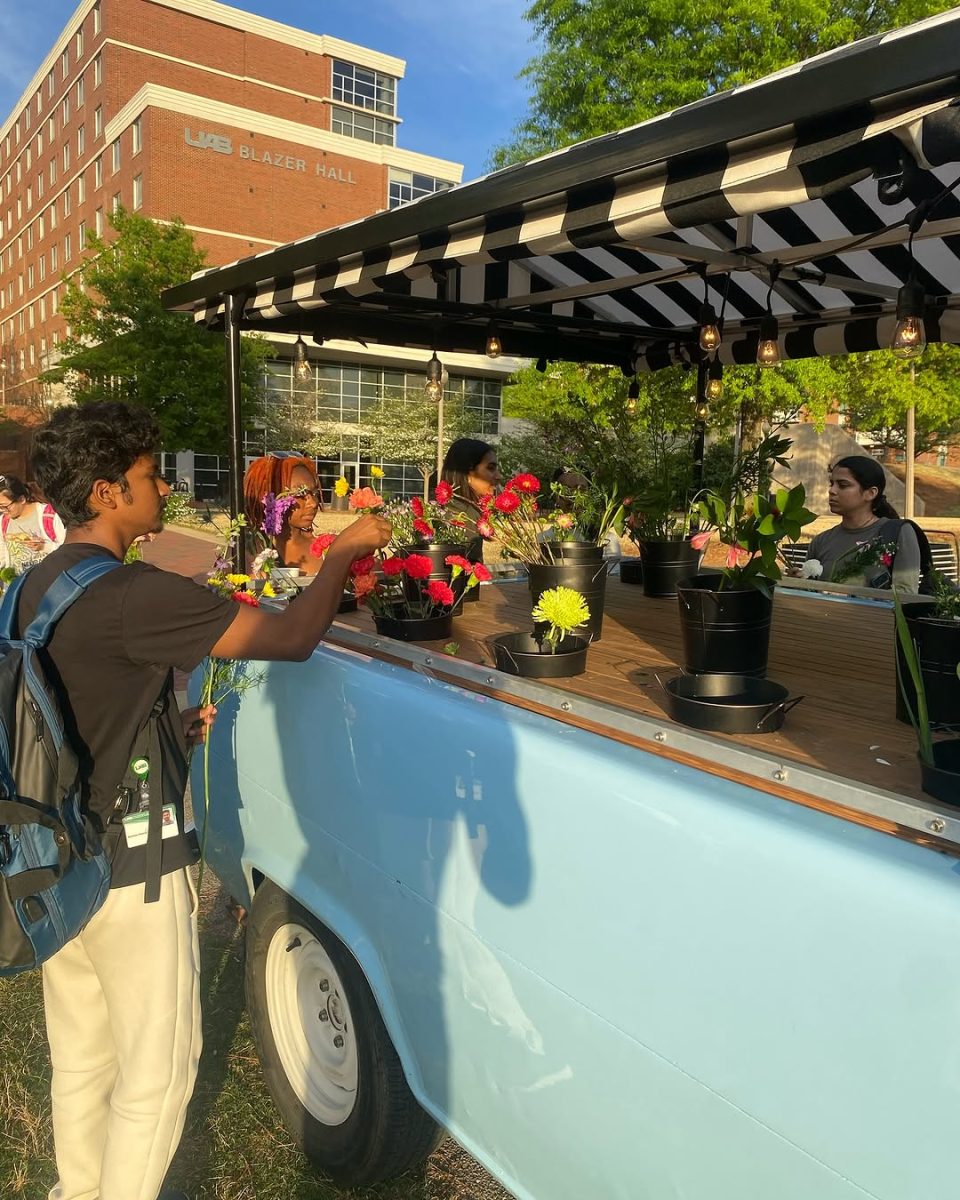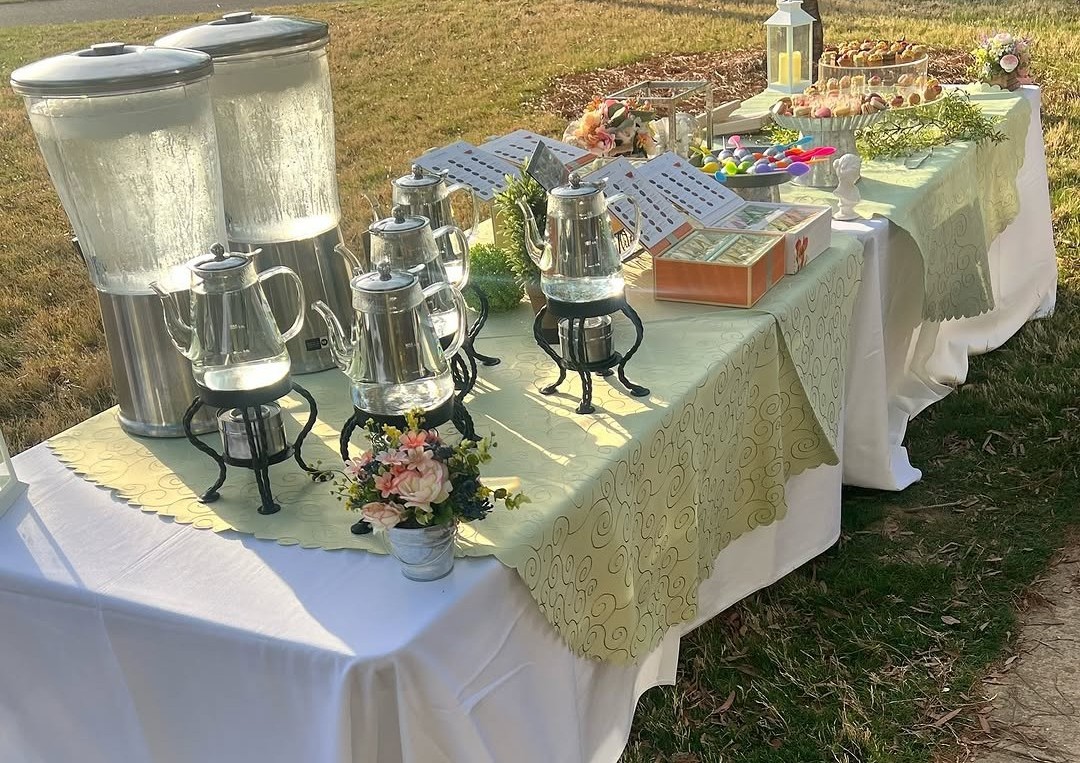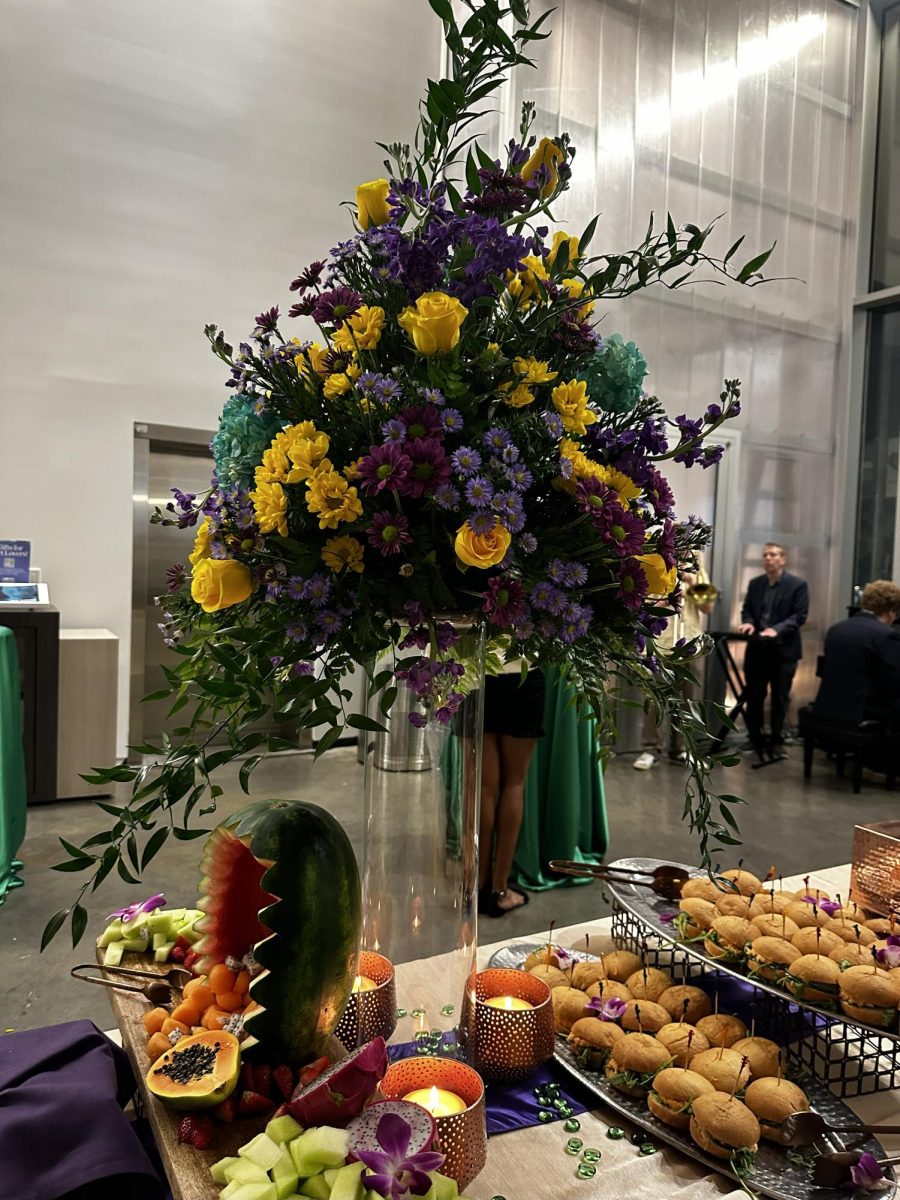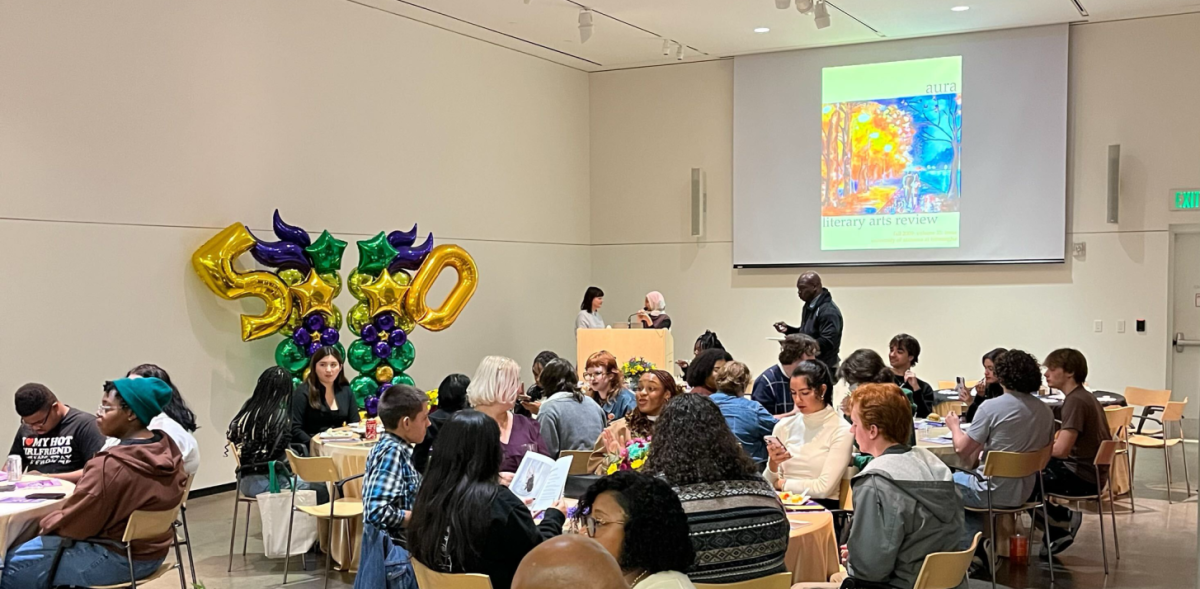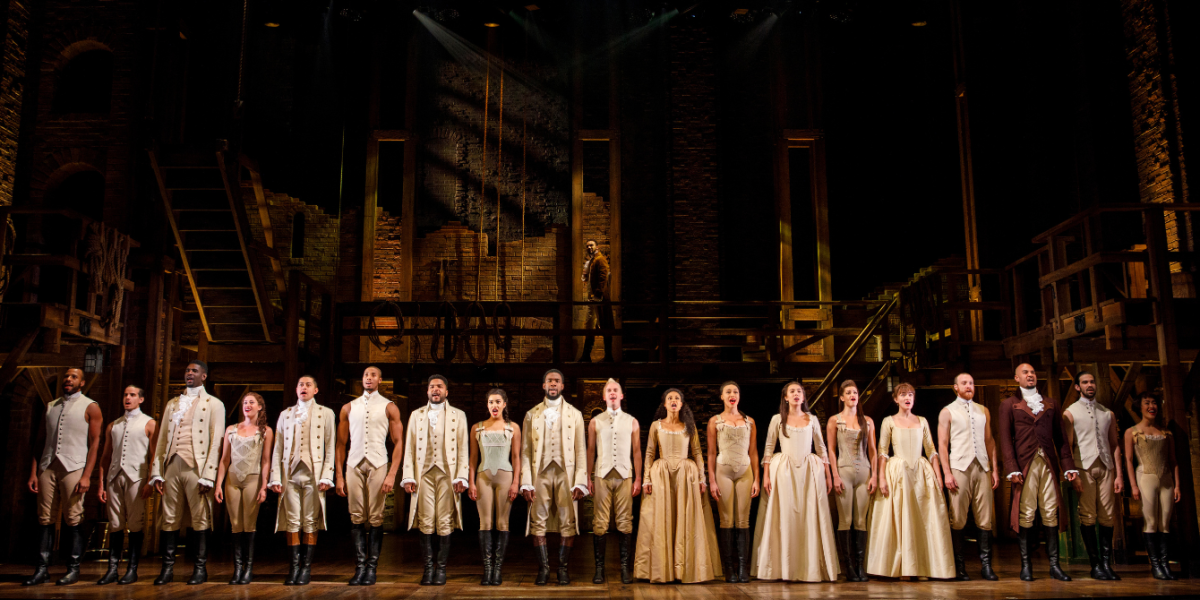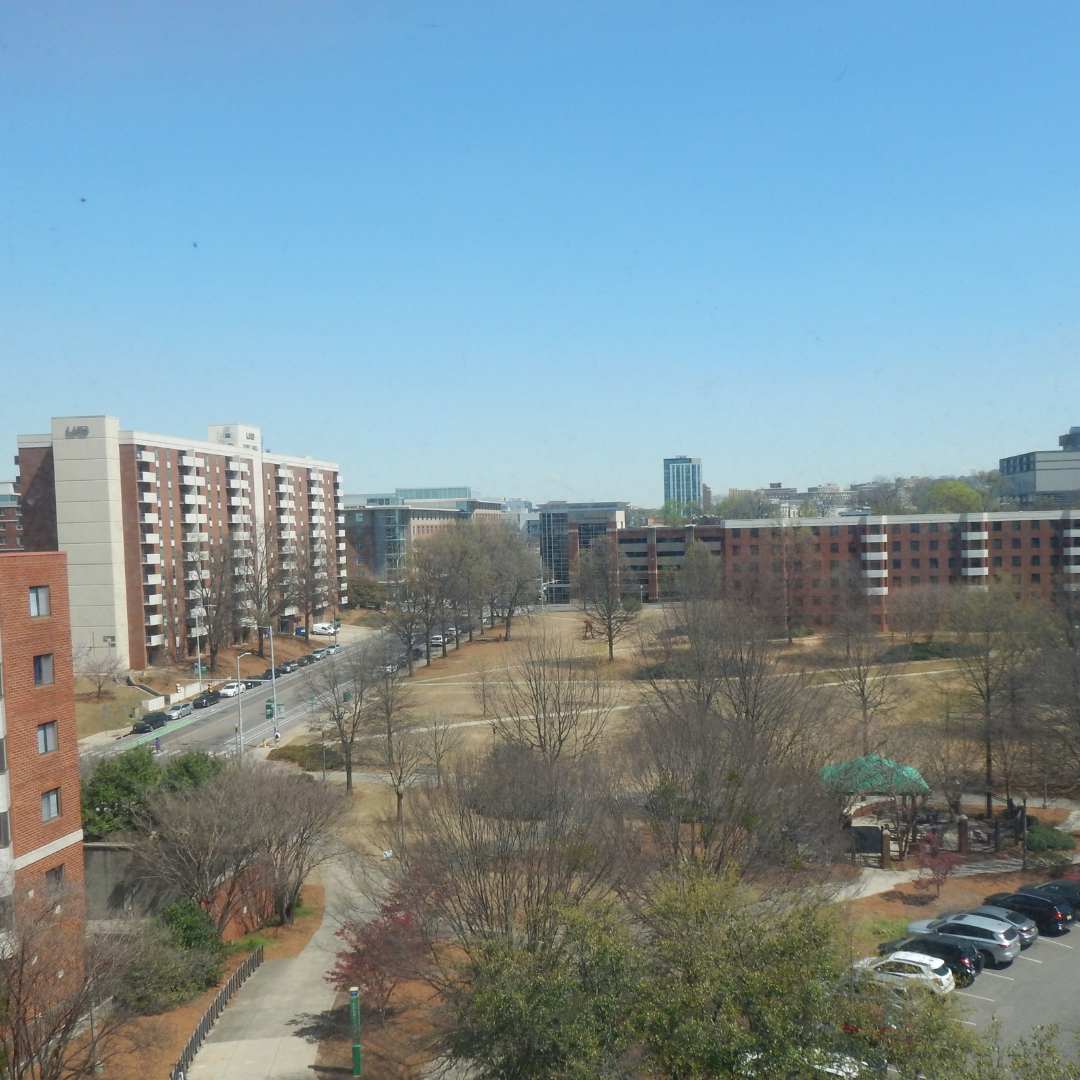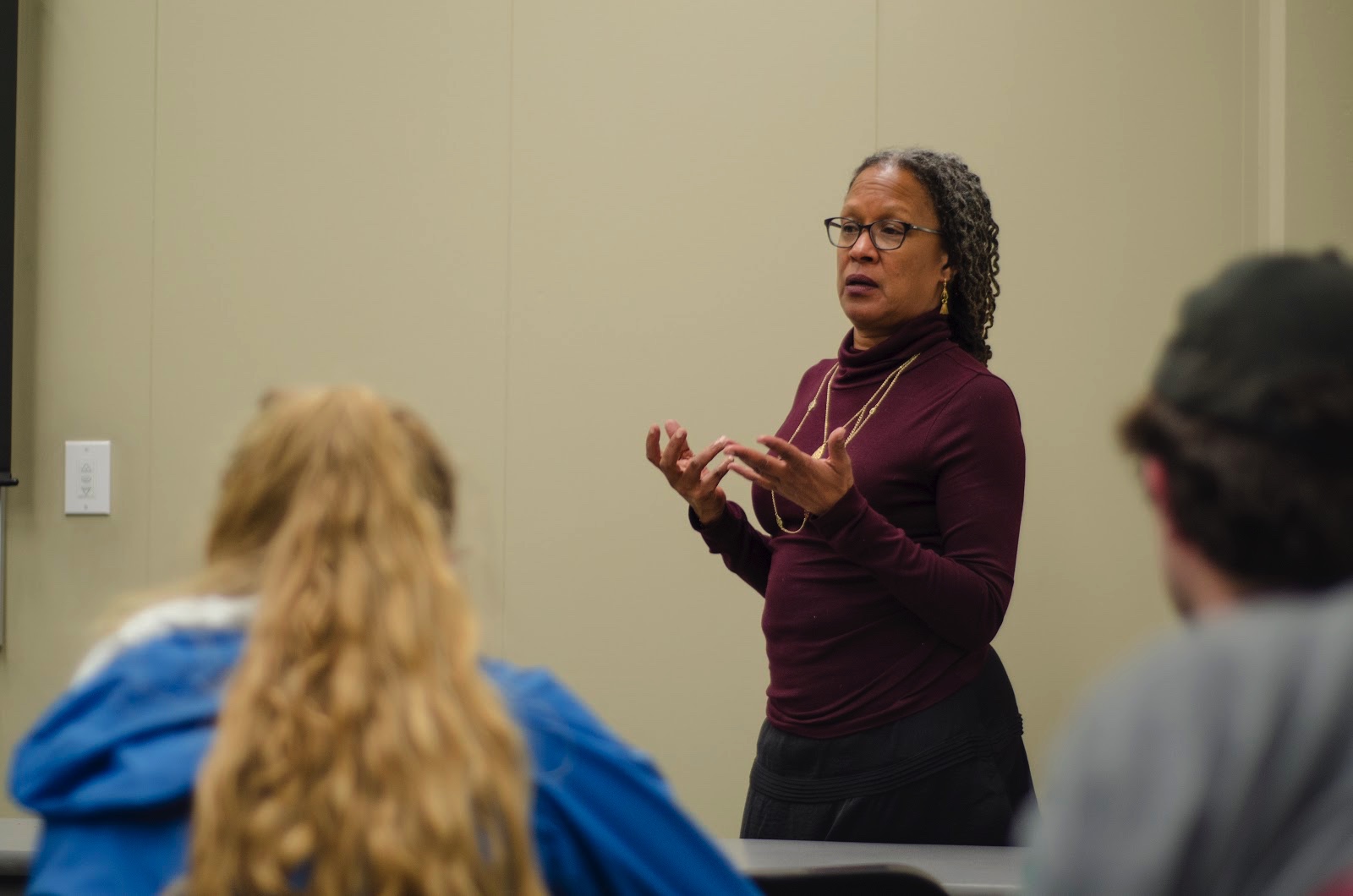
Lecia Brooks answers student questions following her presentation on modern-day hate crimes. Photo by Ian Keel/Photo Editor
Sufia Alam
Campus Reporter
Fighting hate, teaching tolerance and seeking justice are the three basic pillars for the Southern Poverty Law Center. On Monday, Feb. 27, the group met with UAB students in the Humanities Building in order to discuss these ideas and their implications for college campuses.
Lecia Brooks, the outreach director for the SPLC, and Daniel Davis, the campus coordinator for the SPLC, were invited by the UAB College Democrats to present their organization’s mission, which is to “fight hate and teach tolerance while giving a voice to the marginalized and oppressed in this country,” Davis said.
“We have around 917 active hate groups in our country,” Brooks said. “The fact that we refuse to address it is a major problem. When we receive 12 bomb threats in one day to a religious minority in 2017, we need to take action. Now.”
According to Brooks, the SPLC defines a hate group as any group that maligns or demeans another group due to another individual’s characteristics and encourages others to harm them.
Hate speech around marginalized communities has been steadily increasing since last year, Brooks said. Immigrants, African Americans and Muslims are the top three affected groups post-election, with a rise in incidents in K-12 schools, business locations and college campuses. Additionally, Brooks said that the organization has recorded 1,372 hate crimes between the day after the election and Feb. 7.
“Hate never really goes away,” said Ashlyn Murrell, freshman in global public health. “It’s always kind of been there throughout history and it finds a way to resurface no matter how much we fight it. I think it’s important now more than ever to really give it a face and be able to fight back and show people this isn’t our America – show people that we’re ready to fight.”
There are currently 27 active hate groups in Alabama, with many being state-wide, according to Brooks. One group may have multiple chapters throughout the state, and many recruit a large amount of members from college campuses.
Murrell said she was shocked to learn that incidences of Islamophobia are occurring at a higher rate than they were post-9/11. For her, the issue is a personal one and attending the lecture helped her to understand the importance of standing up and fighting hate.
“I have to fight,” Brooks said. “I’m from a historically marginalized community. I’m black, I’m a woman, I’m a lesbian. I have to fight or die.”
Sufia Alam can be reached at [email protected].
